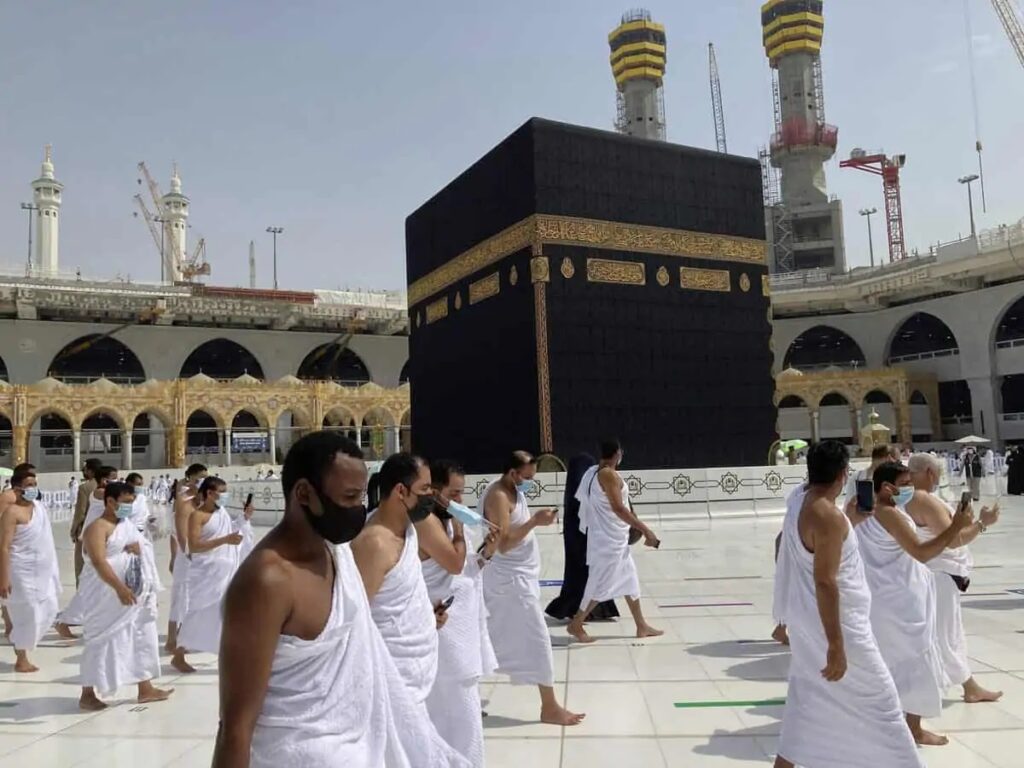14/10/2023
14/10/2023

RIYADH, Saudi Arabia, Oct 14, (Agencies): Muslims with diabetes planning to undertake the Umrah, a lesser pilgrimage to Makkah in Saudi Arabia, are advised to follow a set of recommendations provided by a Saudi state agency responsible for overseeing Islam's two holiest sites.
This agency recommends that faithful pilgrims, particularly those with diabetes, take specific measures to ensure a safe and comfortable pilgrimage experience. Here are the key guidelines:
- Medication and Nutrition: Diabetic pilgrims are encouraged to begin their Umrah rituals at the Grand Mosque in Makkah after taking their prescribed medications and ensuring they have consumed sufficient food. This helps maintain stable blood sugar levels during the pilgrimage.
- Monitoring Blood Sugar Levels: Pilgrims are advised to regularly check their blood sugar levels. If they notice a significant drop, they should temporarily pause their rituals to address this issue.
- Foot Protection: It is essential for pilgrims to safeguard their feet from potential harm while walking. This involves choosing appropriate footwear and being vigilant about their surroundings.
- Carrying Medications: Diabetic pilgrims are recommended to carry a supply of their essential medications with them while at the Grand Mosque, ensuring easy access when needed.
- Hydration: Staying well-hydrated is crucial during the pilgrimage. Pilgrims are encouraged to drink an adequate amount of water to prevent dehydration, especially given the hot and arid climate in Makkah.
- Electric Shavers and Comfortable Socks: For safety and comfort, pilgrims are advised to use electric shavers rather than traditional razor blades. Additionally, wearing comfortable socks is recommended to reduce the risk of blisters and discomfort.
- Seeking Medical Assistance: When necessary, diabetic pilgrims should not hesitate to seek medical assistance at nearby health centers to address any health concerns.
These guidelines have been highlighted as the Umrah season gains momentum in Saudi Arabia, with an estimated 10 million Muslims from abroad expected to participate during the current season. The Umrah season follows the annual Islamic Hajj pilgrimage, which witnessed the participation of approximately 1.8 million Muslims for the first time in three years after the lifting of pandemic-related restrictions.
Muslims who cannot undertake the Hajj, whether for physical or financial reasons, opt for the Umrah, and Saudi Arabia has introduced several measures in recent months to make the pilgrimage experience more accessible for overseas Muslims. These measures include extending the Umrah visa duration from 30 to 90 days, allowing entry and exit via various transportation methods, and removing the requirement for female pilgrims to be accompanied by male guardians. Moreover, expatriates residing in the Gulf Cooperation Council countries can now apply for a tourist visa, regardless of their profession, and embark on the Umrah pilgrimage.


